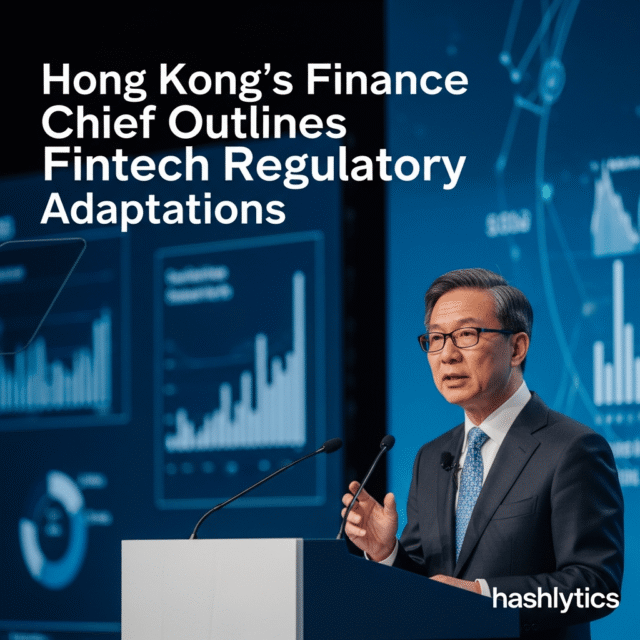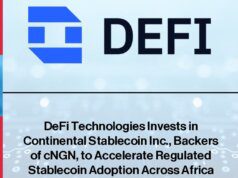Hong Kong is reinforcing its dedication to becoming a leading global fintech hub by adapting its regulatory framework to accommodate the swiftly evolving cryptocurrency landscape. Christopher Hui, Hong Kong’s Secretary for Financial Services and the Treasury, recently articulated the government’s strategy, underscoring a principle of “similar business, similar risk, similar regulation” across all activities related to digital assets.
This proactive stance is notable as other jurisdictions struggle with the complexities of regulating decentralized finance (DeFi) and the broader digital asset ecosystem. Hong Kong endeavors to find an equilibrium between encouraging innovation and safeguarding investors, a delicate balancing act that could significantly influence its future as a prominent financial center.
Hui emphasized that Hong Kong’s regulatory philosophy remains consistent, irrespective of the specific fintech innovation involved. This entails applying uniform standards to digital asset exchanges, stablecoins, custodians, and digital asset trading platforms. The objective is to establish a level playing field where risks are appropriately managed, regardless of the underlying technology.
This “same risk, same regulation” approach has faced criticism, with some arguing that it may impede innovation by imposing traditional financial regulations on emerging technologies. However, Hong Kong’s government maintains that this is a crucial step to ensure market stability and maintain investor confidence.
Hui also highlighted the significant changes occurring within Hong Kong’s fintech ecosystem, beyond regulatory adaptations. He noted the increasing adoption of artificial intelligence (AI) among financial institutions as a key trend. Just three years ago, approximately a quarter of institutions were using AI, but now that number has increased to almost three-quarters.
The increasing adoption rates are important, but so is the depth of integration. Institutions are progressing beyond basic implementations towards more focused and deeply embedded fintech initiatives.
Tokenization and Blockchain
There is also increasing traction with blockchain technology, with more discussions and adoption of tokenized products. Hui mentioned tokenized deposits and tokenized money market funds as examples of how companies can potentially maximize returns on their reserves and capital.
The potential benefits of tokenization are considerable. It can enhance efficiency, lower costs, and create new investment opportunities. However, it also presents new risks, such as regulatory uncertainty and security vulnerabilities, which Hong Kong is actively addressing.
Hong Kong’s proactive approach to fintech regulation is intended to attract both established financial institutions and innovative startups. The city aims to serve as a testbed for new technologies while upholding a robust regulatory framework that protects investors and promotes financial stability. You can view Archives and Yesterday’s Press Releases to see how Hong Kong is adapting.
The success of this strategy hinges on Hong Kong’s ability to adapt swiftly to the ever-changing fintech landscape and to cultivate a collaborative environment among regulators, industry participants, and academic institutions. As Hui points out, the trend is toward wider and deeper integration of fintech – a future Hong Kong appears determined to lead.
Follow us on Bluesky , LinkedIn , and X to Get Instant Updates



